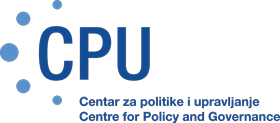Wednesday, September 30, 2020
The impact of socio-economic factors on student achievements during their education and long-term educational outcomes are one of the challenges that have so far passed under the radar of educational policies in Bosnia and Herzegovina. In numerous reform efforts to improve the education system in Bosnia and Herzegovina, a strategy that would address the importance of socio-economic opportunities in the education of individuals was missing, which implies that this issue is not addressed at the educational practices level.
Depending on the policies that define and guide it, education can be a lever of social mobility for socio-economically disadvantaged categories of the population, but it can also become a mechanism that further strengthens stratification and segregation. In an inclusive educational environment, which strives to equalize the chances of success and enable a fair distribution of learning opportunities, academic abilities potentially go beyond socio-economic determination and other related contextual factors that children cannot directly influence.
An important suggestion of the accompanying research of PISA's measurement of the quality of education around the world is that it is through inclusiveness, equality and equity that educational systems comparatively gain in quality.
The executive summary in BHS language is available HERE. The BHS language version of the analysis is available HERE. You can also visit kpi.ba for detailed findings of the analysis, or read the analysis on CPU's ISSUU channel.
